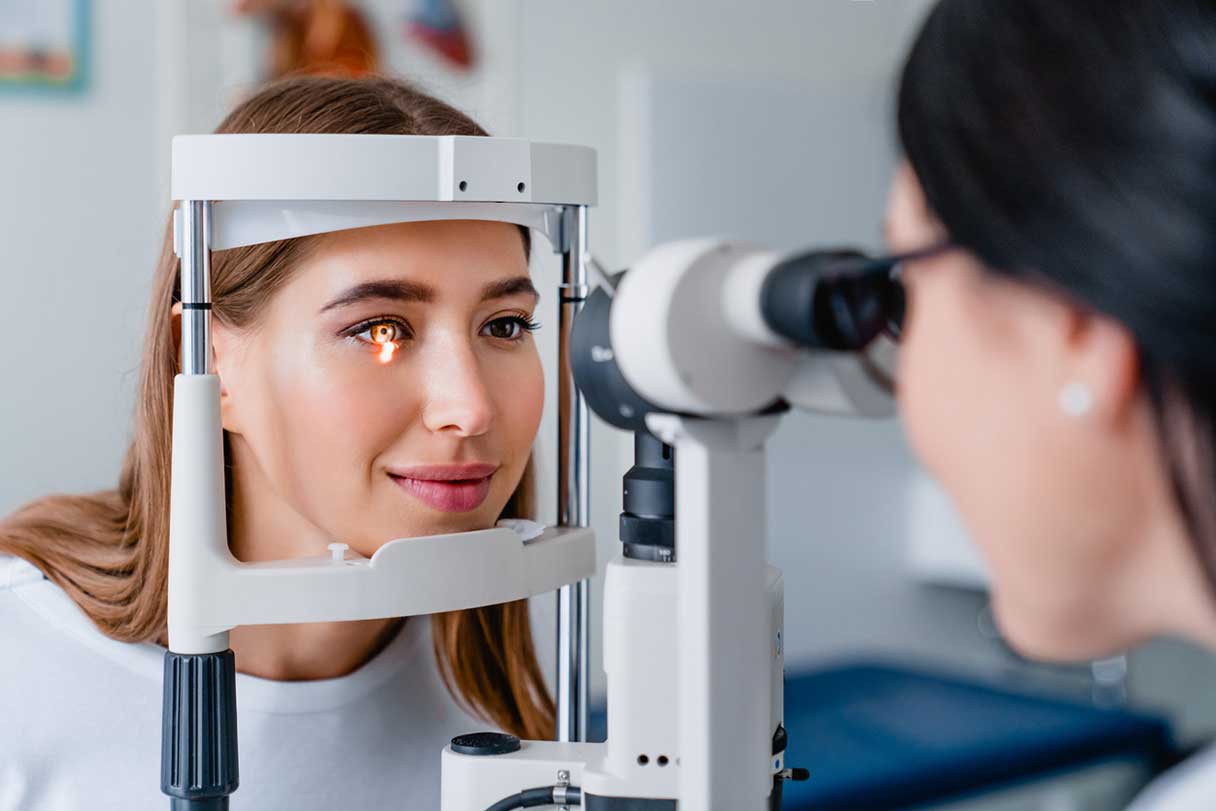Premier Eye Center Panama City Florida for Your Family's Eye Health
Premier Eye Center Panama City Florida for Your Family's Eye Health
Blog Article
A Comprehensive Overview to Eye Surgery Treatments Available at Your Eye Physician's Technique
In the world of ophthalmology, the innovations in eye surgical procedure therapies have actually opened up a globe of opportunities for those looking for enhanced vision and eye health and wellness. From the commonly recognized LASIK eye surgical treatment to the less familiar Corneal Transplants, the array of treatments readily available at your eye medical professional's method can attend to a range of vision-related issues.
LASIK Eye Surgery
When considering vision correction treatments, LASIK eye surgical procedure becomes a popular choice for people looking for long-lasting improvement in their eyesight. LASIK, which represents Laser-Assisted sitting Keratomileusis, is a prominent refractive surgery that intends to fix typical vision issues such as farsightedness, nearsightedness, and astigmatism. This procedure includes utilizing a laser to improve the cornea, allowing light to be appropriately concentrated onto the retina, leading to more clear vision without the need for glasses or call lenses.
One of the vital benefits of LASIK eye surgery is its relatively pain-free and quick nature. The treatment itself generally takes just about 15 mins per eye, with most individuals experiencing improved vision nearly instantly. In addition, the recovery time for LASIK is fairly short, with numerous people able to return to their typical tasks within a day or two.

PRK (Photorefractive Keratectomy)
FIRST SENTENCE:
An additional sophisticated vision modification procedure comparable to LASIK is PRK (Photorefractive Keratectomy), supplying reliable options for individuals looking for choices to standard glasses or get in touch with lenses. PRK is a surgery that reshapes the cornea using an excimer laser to deal with refractive mistakes such as myopia (nearsightedness), hyperopia (farsightedness), and astigmatism. Unlike LASIK, PRK does not entail producing a flap on the cornea; instead, the external layer of the cornea is carefully removed prior to the laser treatment. This makes PRK a suitable alternative for individuals with slim corneas or those associated with activities where the threat of eye trauma is greater.
The recuperation period for PRK is much longer contrasted to LASIK, as the outer layer of the cornea requires time to regenerate. Individuals may experience discomfort and fuzzy vision during the first healing phase, yet vision gradually enhances over several weeks. Your optometrist will offer thorough post-operative care directions to ensure a smooth healing procedure and optimum visual results.
Cataract Surgical Treatment
Cataract surgical treatment, an usual treatment performed by ophthalmologists, involves eliminating the over cast lens within the eye and changing it with a clear fabricated lens implant to restore vision clarity. Cataracts occur when the natural lens of the eye comes to be over cast, bring about obscured vision and trouble seeing clearly. During cataract surgical procedure, the eye doctor makes a tiny laceration in the eye and makes use of ultrasound modern technology to damage up the over cast lens, which is after that delicately sucked out. When the cataract is eliminated, the man-made lens, referred to as an intraocular lens (IOL), is placed to replace the natural lens's function. This IOL aids to concentrate light onto the retina, boosting vision. Cataract surgical treatment is normally done on an outpatient basis and is understood for its high success rate in improving vision and quality of life for people. It is important to seek advice from your optometrist to figure out if cataract surgical treatment is the right option for you based on your specific eye health and wellness needs.
Corneal Transplants
Corneal transplants, also called corneal grafts, are surgeries that entail replacing harmed or diseased corneal tissue with healthy and balanced donor cells to boost vision and ease corneal conditions. This procedure is commonly suggested for people with corneal scarring, thinning, or various other corneal illness that can not be dealt with effectively with other approaches such as medication or get in touch with lenses.
Throughout a corneal transplant, the ophthalmologist eliminates the main portion of the harmed cornea and changes it with a donor cornea. This contributor cells is thoroughly chosen, examined, and stored to guarantee compatibility and minimize the threat of rejection. Corneal transplants can bring back vision, minimize discomfort or pain, and improve the appearance of the eye.
There are different sorts of corneal transplants, consisting of full-thickness transplants (passing through keratoplasty) and partial-thickness transplants (such as endothelial keratoplasty or former lamellar keratoplasty), with the choice depending on the particular condition being dealt with. After the surgical treatment, people call for close post-operative like monitor healing and prevent problems.
Retinal Detachment Surgical Treatment
Complying with effective corneal transplants, one more important eye surgery procedure that may be required for specific individuals is retinal detachment surgical treatment, a delicate operation targeted at recovering the retina's appropriate setting to protect vision and stop additional difficulties (eye doctors panama city beach). Retinal detachment takes place when the retina, the thin layer of tissue at the back of the eye in charge of capturing light and sending aesthetic signals to the mind, retreats from its normal position. This splitting up can cause vision loss if not quickly dealt with through surgical procedure
Throughout retinal detachment surgical treatment, the ophthalmologist functions to reattach the retina to the rear of the eye. There are different medical strategies offered, including pneumatically-driven retinopexy, scleral fastening, and vitrectomy, with the choice relying on the intensity and particular characteristics of the detachment. If possible, the objective of the surgery is to protect against vision loss and bring back or improve vision. After the treatment, clients might need to adhere to a post-operative care strategy to optimize recovery and visual end results. Early detection and therapy of retinal detachment are essential in maintaining vision and avoiding irreversible vision disability.
Final Thought

In the realm of ophthalmology, the innovations in eye surgical treatment therapies have opened up a globe of possibilities for those seeking boosted vision and eye health and wellness. From the widely recognized LASIK eye surgical procedure to the less familiar Corneal Transplants, the selection of procedures offered at your eye doctor's method can resolve a variety of vision-related concerns. It is important to seek advice from with your eye medical professional to identify if cataract surgical treatment is the right alternative for you based on your individual eye health and wellness demands.
Following successful corneal transplants, one more essential eye surgery procedure that may eye center panama city florida be needed for particular individuals is retinal detachment surgical treatment, a fragile procedure intended at bring back the retina's appropriate placement to maintain vision and prevent further issues.In verdict, there are various eye surgery therapies offered at your eye doctor's technique, consisting of LASIK, PRK, cataract surgery, corneal transplants, and retinal detachment surgical procedure.
Report this page